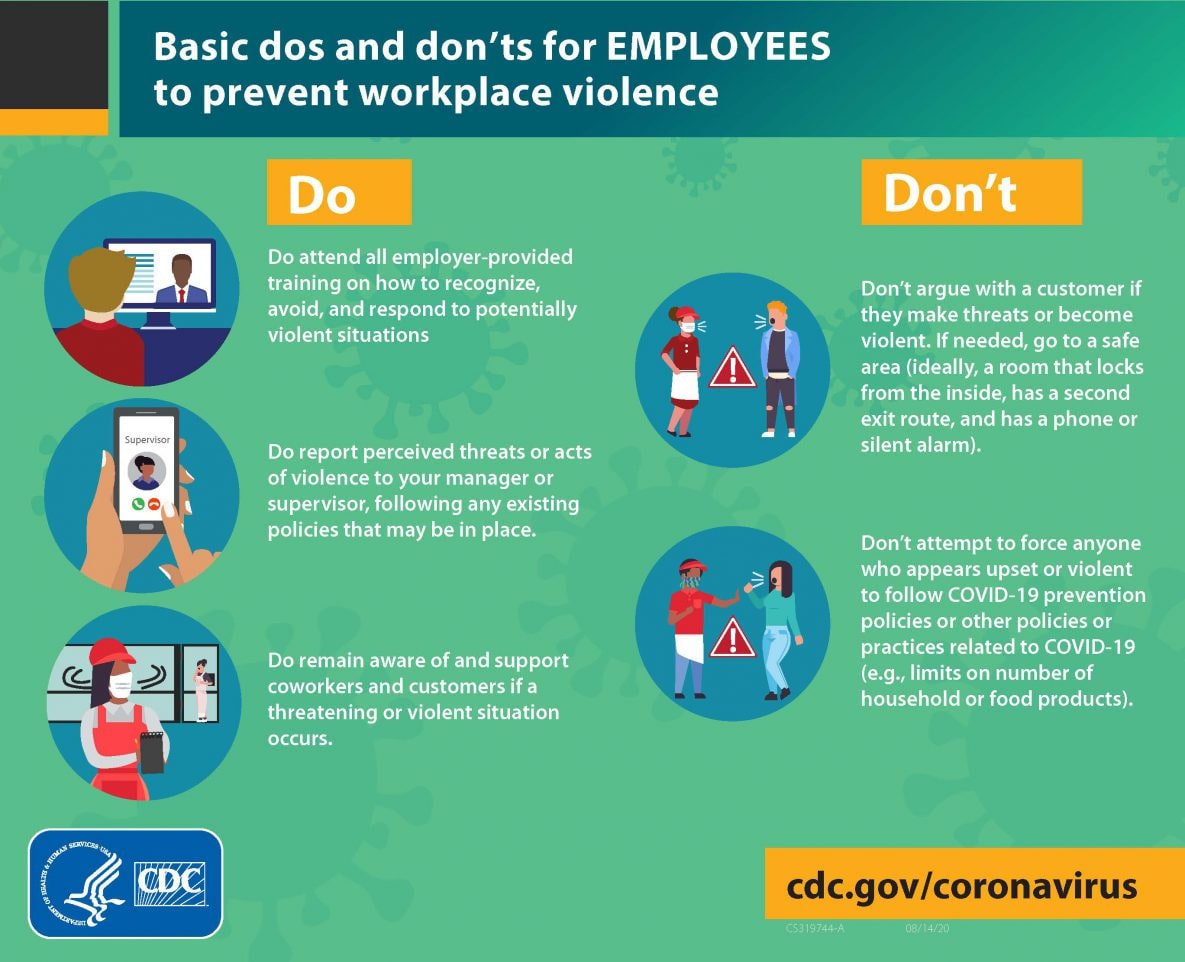COVID-19 & Workplace Violence
The CDC has released guidance on how employers can help limit workplace violence associated with policies such as requiring that customers wear masks.
Attorneys writing for Bloomberg Law also recommend that employers recognize and prepare for workplace violence risks that might arise between coworkers, especially as might be sparked by mask- or social distancing-resistant co-workers. According to the authors, “While employees should be encouraged to try to address such concerns on their own if they are comfortable doing so, they should know who to seek help from if they are uncomfortable or need assistance.” Furthermore, in addition to reminding employees of support resources that may be available, such as Employee Assistance Programs, “Employers should create and train employees to use safe and proper channels that employees can use to report problems with co-workers and related methods for addressing employee concerns.”
Human Trafficking
A new JAMA Pediatrics viewpoint discusses how the pandemic has increased the risks of human trafficking, as well as impede efforts to identify and provide service to those who are trafficked and survive trafficking. Efforts to mitigate housing and food insecurity can reduce the risks within these vulnerable populations. However, other Covid-19 interventions, such as increased use of telehealth services and mandatory PPE use by health care professionals, may either not serve well these populations or impede the type of trust building necessary to connect this population with care.
Covid-19 as a Syndemic
According to this essay from The Lancet Editor-in-Chief Richard Horton, to effectively respond to Covid-19, we must recognize that what is occurring now a syndemic, or synergistic epidemic, rather than merely the broad spread of a pathogen. The Lancet defines a syndemic as “a conceptual framework for understanding diseases or health conditions that arise in populations and that are exacerbated by the social, economic, environmental, and political milieu in which a population is immersed.” As Horton elaborates,
The most important consequence of seeing COVID-19 as a syndemic is to underline its social origins. The vulnerability of older citizens; Black, Asian, and minority ethnic communities; and key workers who are commonly poorly paid with fewer welfare protections points to a truth so far barely acknowledged—namely, that no matter how effective a treatment or protective a vaccine, the pursuit of a purely biomedical solution to COVID-19 will fail.
Housing Law & Health Equity – Free Indiana Symposium
The interaction between the virus and the social, economic and political environment has resulted in a national housing stability crisis. The Indiana Health Law Review and IU McKinney Hall Center for Health will hold a virtual annual Symposium “The Intersection of Health Equity and Housing Law,” on Thursday, October 15 and Friday, October 16, 2020, from 11am-2pm each day. Day 1 of the Symposium will address the characteristics of a healthy home through the scope of affordability and stability in housing. Day 2 “will address the characteristics of a healthy neighborhood by examining both the impact of environmental elements and the impact of racial segregation on health and housing.”
The event will feature more than a dozen national and local experts on housing law and policy, medical-legal partnership, environmental law, poverty law, and diversity and equity.
Registration is separate for each day of the event. Register for the October 15 session here, and the October 16 session here.

